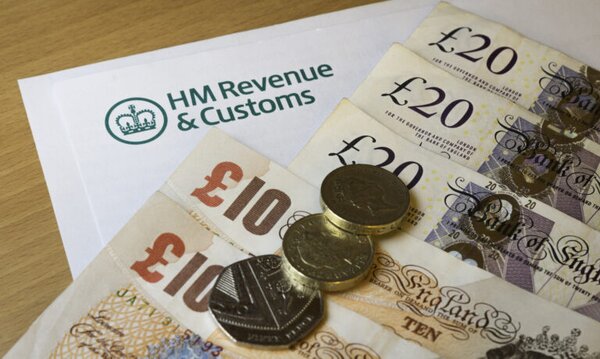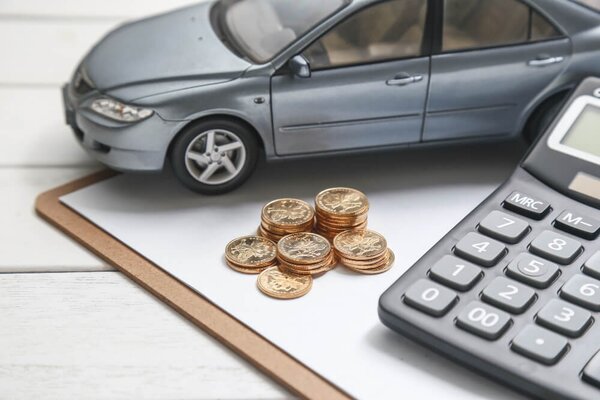Let’s Break This Down Together...
Not sure if your Etsy income is taxable? You’re not alone, lots of UK sellers are asking the same thing. This guide explains when you need to pay tax, how much, and what records to keep. We’ll also cover key thresholds, HMRC rules, and what to do next. By the end, you’ll know exactly where you stand and how to stay on the right side of the taxman. Let’s dive in.
Is Etsy Income Taxable in the UK?
Yes, all income you earn from selling on Etsy is potentially taxable in the UK. You must declare income from Etsy to HMRC. HMRC doesn’t have a special “Etsy seller” category they simply view your activity as either trading or running a business.
The good news is that casual sellers can take advantage of the £1,000 Trading Allowance. This means if your total income from Etsy (and any other trading activities) is under £1,000 for the tax year, you don’t need to report it. However, if your earnings exceed this threshold, you are required to pay taxes on the income generated from your Etsy sales.
However, once you cross that £1,000 threshold, you’ll need to register as self-employed and complete a Self Assessment tax return. Once your Etsy income is taxed, you need to pay tax according to HMRC rules. Even if your total income falls below the Personal Allowance (£12,570 for 2023/24), you still need to register if your trading income exceeds £1,000.
When Do I Need to Register My Etsy Shop with HMRC?
You need to register with HMRC if your Etsy income (plus any other self-employed earnings) exceeds £1,000 in a tax year. The UK tax year runs from 6 April to 5 April the following year.
Before registering, you need to decide whether to operate as a sole trader or set up a limited business, as each structure has different tax and administrative implications. Registering as self-employed involves completing a registration form with HMRC, and you may need to submit additional forms depending on your business structure.
The deadline for registration is 5 October following the end of the tax year in which you started trading. For example, if you started selling in June 2023, you’d need to register by 5 October 2024. Registering doesn’t automatically mean you’ll pay tax, it just means HMRC knows about your business activity.
Whether you pay tax depends on your profits and other income. Many Etsy sellers run their shops alongside regular employment. In this case, you still need to register as self-employed if your Etsy income exceeds £1,000. You should also consider whether Etsy is your main source of income or just a side hustle, as this affects your tax obligations.
Business Structure and Tax: Sole Trader or Limited Company?
When you start selling on Etsy, one of the first big decisions is choosing the right business structure. Most UK Etsy sellers begin as sole traders, which is the simplest way to run your Etsy business.
As a sole trader, you and your business are legally the same entity, you’re personally responsible for any debts, and you pay income tax on your Etsy earnings through your self assessment tax return. This setup is straightforward and ideal for many small businesses and side hustles.
However, as your Etsy sales and profits grow, you might consider forming a limited company. A limited company is a separate legal entity, which means the business, not you personally, owns the assets and is responsible for its debts.
Profits are subject to corporation tax, which can be lower than higher rates of income tax. As a director, you can pay yourself a salary and dividends, which may help reduce your overall tax bill. Keep in mind, though, that running a limited company comes with extra responsibilities, such as filing annual accounts and potentially paying national insurance on your salary.
Choosing between sole trader and limited company has important tax implications, so it’s worth reviewing your Etsy business’s income and future plans before deciding. Many Etsy sellers stick with sole trader status until their profits make the switch worthwhile.

National Insurance Contributions for Etsy Sellers
If you’re self employed and running an Etsy business, you’ll also need to think about national insurance contributions (NICs).
These payments go towards your state pension and other benefits, and are a key part of your overall tax obligations. The amount you need to pay depends on your yearly profits from Etsy sales and any other self employment income. Etsy sellers with profits above the lower threshold must pay Class 2 NICs, which are a flat weekly rate, and Class 4 NICs, which are a percentage of your profits.
If your Etsy business profits are below the threshold, you may not need to pay national insurance, but it’s still important to check each tax year. Factoring NICs into your business expenses and pricing ensures you’re not caught out by unexpected costs when it’s time to pay your tax bill.
Tax Allowances That Help UK Etsy Sellers
As an Etsy seller in the UK, several tax allowances can reduce your tax bill. Your Personal Allowance means the first £12,570 of your total income is tax-free in the 2023/24 tax year.
The Trading Allowance gives you £1,000 of tax-free trading income. You can either use this or deduct your actual business expenses, whichever gives you the lower tax bill.
You can claim certain expenses as deductions from your Etsy income to reduce your taxable income. This includes the cost of materials, packaging, Etsy fees, and other direct costs. If you work from home, you can claim a proportion of your household bills as business expenses. Alternatively, you can use HMRC’s simplified flat rate method.
How to Work Out Your Taxable Etsy Profit
Your taxable profit is your total Etsy income from each sale, minus your allowable business expenses. Every sale you make on Etsy contributes to your total income, and this is the amount you’ll pay tax on.
Keep meticulous records and collect information on all sales and business-related purchases. This includes materials, shipping costs, Etsy fees, packaging, and any equipment you buy for your business.
If you use the Trading Allowance, you can’t also claim expenses. It’s worth calculating both ways to see which option leaves you better off. I learned this the hard way when I first started selling handmade cards.
The income generated from those sales seemed small, but I initially claimed the Trading Allowance, only to realise I’d spent over £1,200 on materials and equipment that year!
For occasional sellers with income just over £1,000, the Trading Allowance often works out best. For more established shops with significant expenses, itemising your costs typically saves more tax. Remember, you’ll need to report your profits and file tax returns to HMRC.

Record Keeping and Accounting Essentials
Good record keeping is the backbone of a successful Etsy business and is essential for meeting your tax obligations. Etsy sellers should keep detailed records of all sales, business expenses, and profits, as well as supporting documents like receipts, invoices, and bank statements.
These records are crucial when it comes to completing your self assessment tax return and can help you claim all the expenses you’re entitled to, reducing your tax bill. Using accounting software such as Crunch or Untied can make managing your sales data and expenses much easier, helping you stay organised throughout the tax year.
Don’t forget to keep track of important deadlines, especially for your self assessment tax return, to avoid penalties. Staying on top of your accounts means you’ll always know where your business stands and can make informed decisions as your Etsy shop grows.
Filing Your Self Assessment with Etsy Income
The deadline for submitting your Self Assessment tax return form is 31 January following the end of the tax year. For the 2023/24 tax year (ending 5 April 2024), your deadline for filing tax returns is 31 January 2025. Depending on your circumstances, you may also need to complete additional forms as part of the process.
Online filing is the standard method for most Etsy sellers. HMRC’s online system will guide you through the process, with specific sections for self-employment income. If your tax bill exceeds £1,000, you may need to make Payments on Account.
These are advance payments towards next year’s tax bill and are part of paying tax on your Etsy income, which can catch new sellers by surprise. Missing deadlines for registration, filing, or payment of tax returns can result in penalties. It’s best to set reminders well in advance to avoid these unnecessary costs.
VAT Considerations for Etsy Sellers
Most small Etsy sellers won’t need to worry about VAT (Value Added Tax), which is a type of added tax on sales, initially. You only need to register for VAT once your taxable turnover exceeds £85,000 in a 12-month period. If your sales go above this threshold, you are required to charge VAT on your sales and pay VAT to HMRC.
Digital products and services sold to EU customers have special VAT rules, including specific requirements for Northern Ireland. Fortunately, Etsy now handles much of this complexity through their platform. For physical goods and services sold internationally, Etsy also helps manage many tax requirements through Etsy payments, which processes customer payments and handles VAT collection where applicable.
However, you should still understand your obligations as the seller. Some higher-turnover sellers might benefit from voluntary VAT registration. This is especially true if they buy a lot of VAT-rated supplies for their business.

Common Tax Mistakes Etsy Sellers Make
Even the most creative Etsy sellers can fall into common tax traps. One frequent mistake is not registering for self assessment when your income exceeds the trading allowance, or forgetting to declare all your income, including money from other sources. Incomplete or inaccurate record keeping is another pitfall, which can lead to missed expense claims and a higher tax bill than necessary.
Some Etsy sellers also overlook important tax thresholds, like the VAT registration limit, or miss out on claiming certain business expenses. To avoid these issues, make sure you keep thorough records, understand your tax obligations, and review your business finances regularly. Taking these steps will help you stay compliant and keep your Etsy business running smoothly.
Seeking Professional Tax Advice
Navigating the world of tax can be challenging, especially as your Etsy business grows. Seeking professional tax advice can make a big difference, ensuring you meet all your tax obligations and take advantage of every tax relief available. A qualified tax professional can help you choose the best business structure, keep your records in order, and plan ahead to minimise your tax bill.
They can also guide you through claiming business expenses, meeting tax deadlines, and understanding the specific tax implications of selling on online marketplaces like Etsy. With expert advice, you can focus on what you do best, creating and selling, while knowing your tax affairs are in safe hands. For many Etsy sellers, investing in professional support is a smart move that pays off in peace of mind and business growth.
Final Thoughts
A key point for UK Etsy sellers is staying compliant with taxes on all online sales. HMRC closely monitors online platforms like Etsy to ensure sellers are meeting their tax obligations, including income tax and VAT where applicable.
Managing your Etsy tax obligations isn’t as daunting as it might seem. The key is understanding when you need to register and keeping good records from day one. Providing excellent service is essential for attracting and retaining Etsy shoppers, who expect a personalized and high-quality experience.
Enhancing your shop's visibility through advertising and search engine optimisation can help you reach more customers and stand out during shopping sessions. Remember that all Etsy income over £1,000 needs to be declared to HMRC. This applies even if your shop is just a side hustle or hobby that’s grown.
Tax rules for online sellers continue to evolve. Staying informed about your obligations will help you avoid unexpected tax bills or penalties. When in doubt, getting professional advice early can save you money and stress in the long run.
Simplifying Etsy Income Taxable in the UK Tax
Running your creative business should be about making beautiful things, not wrestling with tax calculations and deadlines. The UK's first personal tax app, Pie connects directly to your bank accounts. So you can track your income and expenses throughout the year.
You'll always know exactly where you stand with tax, with real-time estimates of what you'll owe. This eliminates those nasty year-end surprises that can derail your creative business. If you'd like to see how Pie could take the stress out of your Etsy tax obligations, we invite you to explore our app today.

Your Step-by-Step Guide
Steps to Enter Your Sole Trader Income for Self-Assessment. Keeping on top of your income helps you stay tax-efficient and ready for HMRC. Here’s exactly how to do it in the Pie app:
Connect your bank account, tap ‘Bookkeeping’ on the navigation bar, and swipe right on eligible transactions to move them to the ‘Income’ tab. Use multi-select or double-tap to sort multiple expenses quickly.Adding Income By Bookkeeping

Use the ‘Quick Add’ feature to manually enter any additional income or expenses not found in your bank transactions for your self-assessment.Adding Income Manually












